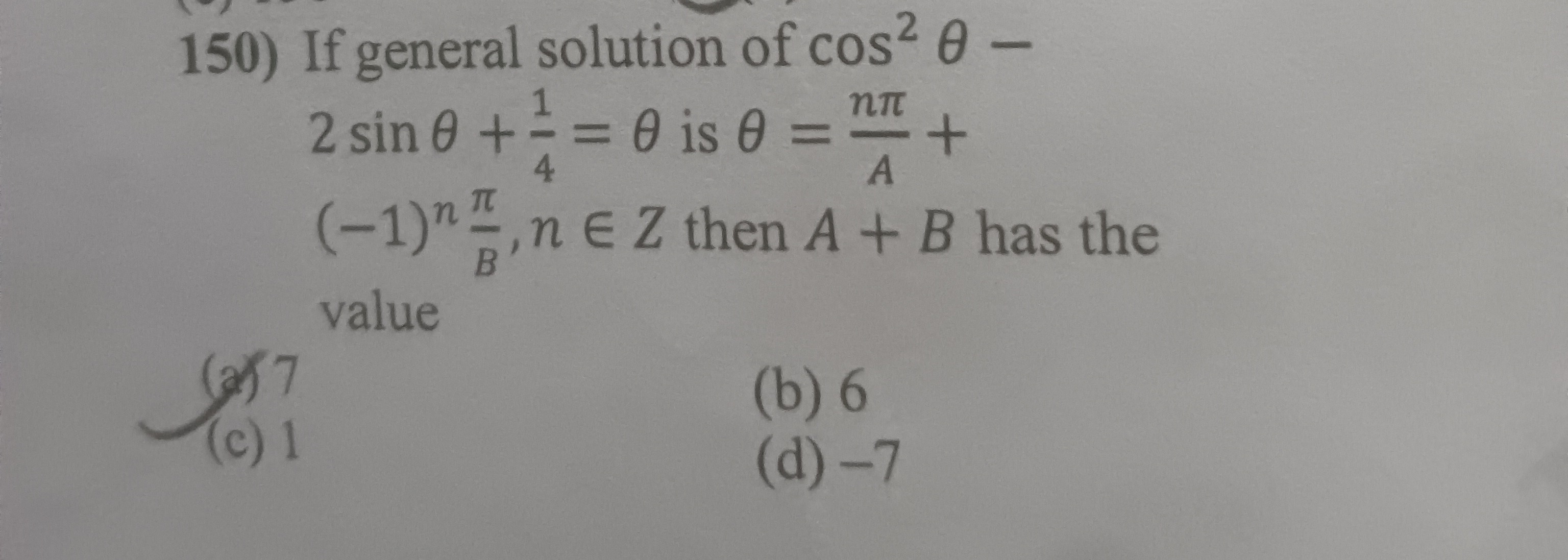Question
Question: If general solution of $\cos^2\theta - 2\sin\theta + \frac{1}{4} = 0$ is $\theta = \frac{n\pi}{A} + ...
If general solution of cos2θ−2sinθ+41=0 is θ=Anπ+(−1)nBπ,n∈Z then A+B has the value

A
7
B
6
C
1
D
-7
Answer
7
Explanation
Solution
-
Rewrite the equation using the Pythagorean identity:
cos2θ=1−sin2θSubstituting into the equation:
1−sin2θ−2sinθ+41=0⇒−sin2θ−2sinθ+45=0Multiply by -1:
sin2θ+2sinθ−45=0 -
Solve the quadratic equation in sinθ:
sinθ=2−2±4+5=2−2±3The valid solution is:
sinθ=21. -
The general solutions for sinθ=21 are:
θ=6π+2πkandθ=65π+2πk(k∈Z) -
These can be written in the form:
θ=πk+(−1)k6π(k∈Z)Comparing with the given form:
θ=Anπ+(−1)nBπ,we deduce A=1 and B=6.
-
Therefore,
A+B=1+6=7.
Core Explanation:
Rewrite using 1−sin2θ, solve for sinθ=1/2, express general solutions as θ=πk+(−1)kπ/6 which corresponds to A=1,B=6. So, A+B=7.
